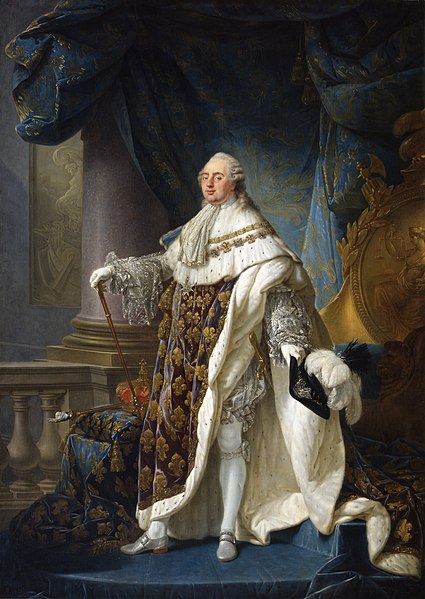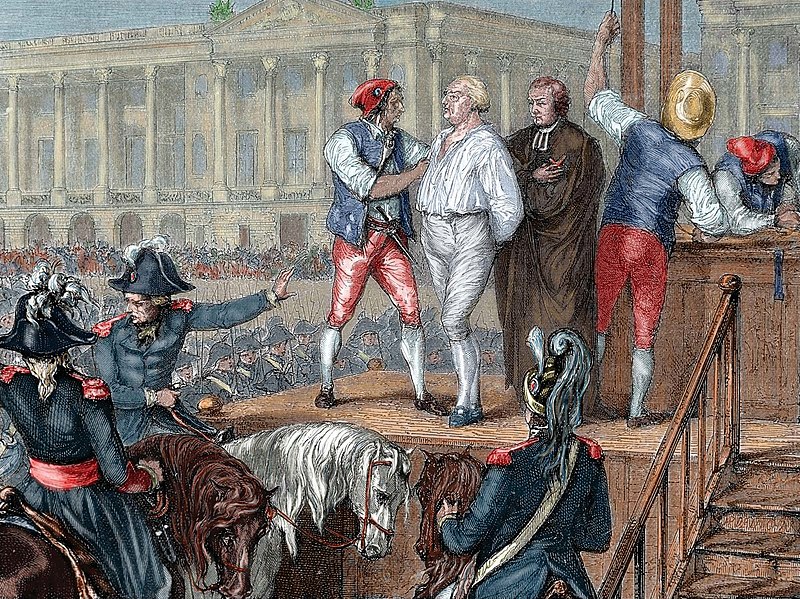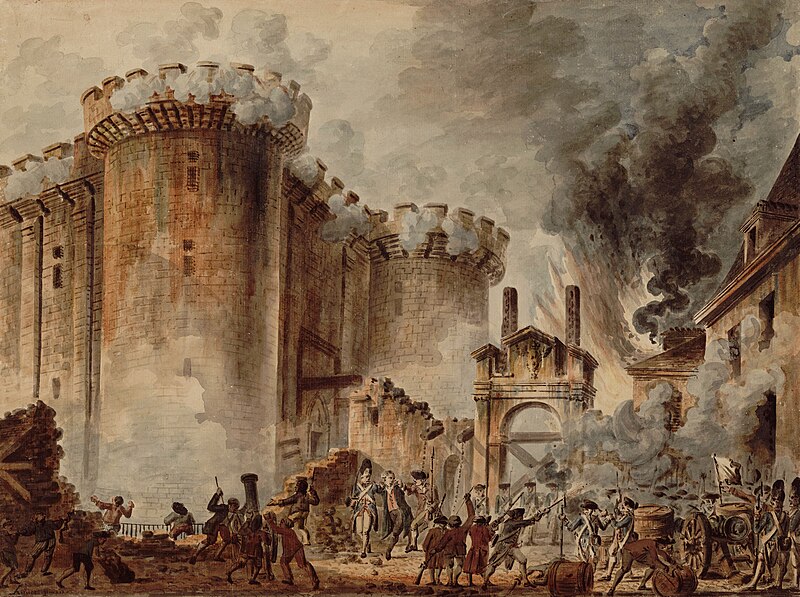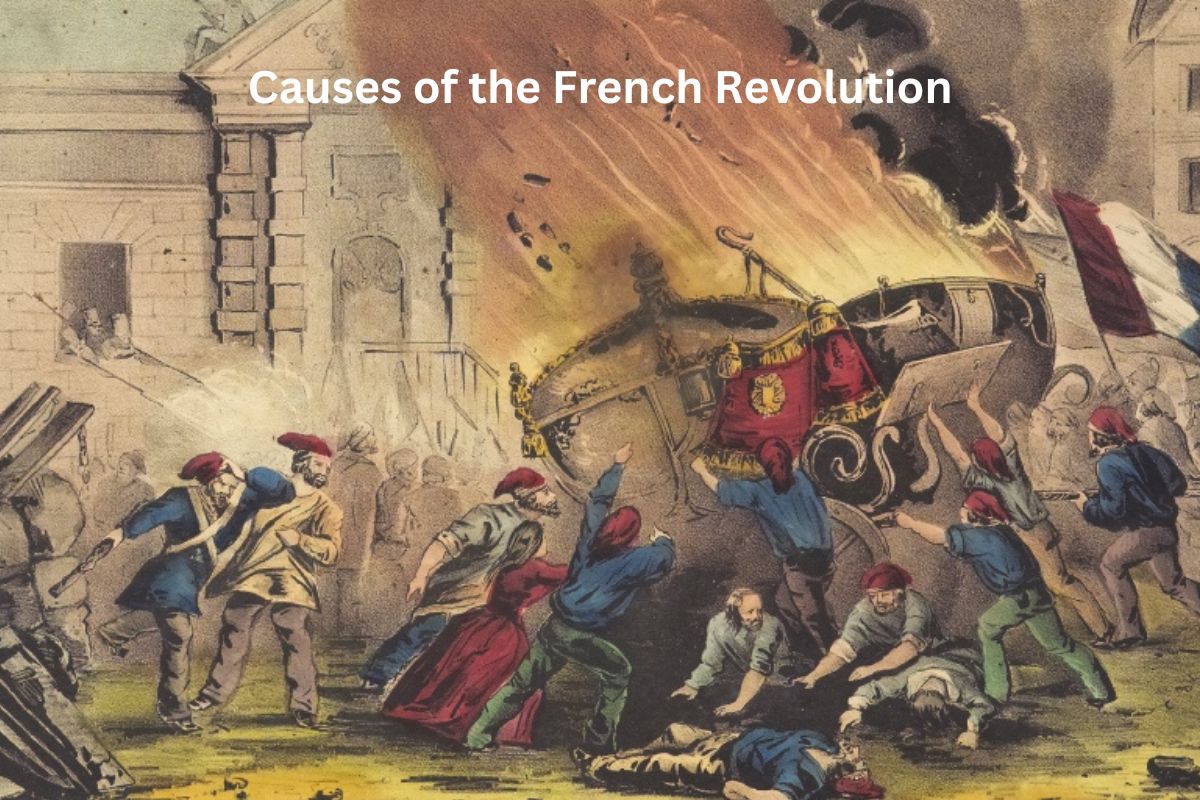The causes of the French Revolution were a complex interplay of factors that ignited a profound upheaval in the late 18th century.
Driven by a combustible mix of social disparities, economic turmoil, and intellectual fervor, the revolution’s origins can be traced to the stark inequalities among social classes, the economic hardships faced by the majority, and the potent influence of Enlightenment ideas that championed liberty, equality, and individual rights.
These catalysts set in motion a chain of events that would lead to the upheaval of a monarchy and the birth of a new era in France’s history.
The French Revolution, spanning from 1789 to 1799, was a seismic event that forever altered the course of history. This revolution would go on to reshape the political, social, and cultural landscape of France and inspire profound global transformations.
| Causes of the French Revolution | Description |
|---|---|
| Social Inequality | Division into three estates, with clergy and nobility privileged, while commoners faced inequality. |
| Economic Distress | High debt, poor harvests, food shortages, regressive taxation contributed to economic challenges. |
| Enlightenment Ideas | Philosophical movement advocating individual rights, liberty, reason, influencing demands for change. |
| Financial Crisis | Debts from wars, extravagant spending, ineffective attempts to raise taxes worsened financial crisis. |
| Poor Leadership and Weak Governance | King Louis XVI’s indecisiveness, ineffective ministers eroded monarchy’s legitimacy. |
| Influence of the American Revolution | Success of American Revolution inspired demands for similar rights and freedoms in France. |
| Social Unrest | Poverty, unemployment, hunger led to frustration, riots, and uprisings among the urban and rural poor. |
| Estates-General and National Assembly | Formation of National Assembly by Third Estate in response to unequal representation in Estates-General. |
| Storming of the Bastille | July 14, 1789: Mob stormed Bastille, symbolizing resistance against royal tyranny, sparking radicalization. |
| Radicalization and Reign of Terror | Rise of political clubs, like Jacobins, Reign of Terror initiated by revolutionary government, led by Robespierre. |
French Revolution Causes
1. Social inequality (privileged clergy and nobility, oppressed commoners)
The French society of the 18th century was divided into three distinct estates. The First Estate comprised the clergy, the Second Estate consisted of the nobility, and the Third Estate included the commoners – peasants, urban workers, and the bourgeoisie (middle class).
Also Read: Effects of the French Revolution
The clergy and nobility enjoyed significant privileges, including exemption from most taxes, while the burden of funding the government and supporting the lavish lifestyles of the upper classes fell heavily upon the commoners.
This stark contrast in treatment created deep resentment and frustration among the common people, who felt oppressed and unfairly treated by a system that favored the privileged few.

2. Economic distress (high debt, food shortages, unfair taxation)
France faced a series of economic challenges in the years leading up to the revolution. The monarchy’s involvement in various wars, including the Seven Years’ War and the American Revolutionary War, had left the country deeply in debt.
Also Read: Dates of the French Revolution
Furthermore, the country experienced a series of poor harvests that led to food shortages and high prices for basic necessities. This placed a heavy burden on the already struggling commoners, who were grappling with poverty, unemployment, and rising costs of living.
Compounding these issues was a regressive taxation system that disproportionately affected the lower classes while the clergy and nobility enjoyed tax exemptions.
3. Enlightenment ideas (demanding rights, liberty, reason)
The Enlightenment was a philosophical movement that emphasized reason, individual rights, and liberty. The ideas propagated during this period had a profound impact on public consciousness and ignited a desire for political change.
Philosophers like Voltaire, Rousseau, Montesquieu, and Diderot challenged traditional authority, advocating for greater personal freedoms and questioning the prevailing social order.
Also Read: Leaders of the French Revolution
These ideas spread through literature, salons, and other intellectual circles, influencing a growing number of people to question the legitimacy of the monarchy’s absolute power and demand more democratic forms of governance.
The Enlightenment ideals not only shaped the thinking of the educated elite but also filtered down to the common people, fostering a desire for greater political participation and equality.

4. Financial crisis (debts, ineffective attempts to raise funds)
By the late 18th century, France was grappling with a significant financial crisis. The monarchy’s involvement in various wars and conflicts, including the support of the American colonies during the Revolutionary War, had led to a staggering amount of debt.
In an attempt to address this crisis, the French government undertook various measures, including borrowing money and imposing new taxes.
However, these efforts often fell short of resolving the economic woes. The nobility, who held significant power and influence, were often able to avoid bearing their fair share of the tax burden.
This unequal distribution of financial responsibility further deepened the resentment among the common people, who were already struggling with economic hardships.
5. Poor leadership and weak governance (King Louis XVI’s indecisiveness)
King Louis XVI’s reign was marked by indecision, weak leadership, and ineffective governance. He faced challenges in managing the country’s financial crisis and addressing the grievances of the people.
Louis XVI’s attempts to implement reforms were often hindered by resistance from the nobility and court factions, resulting in a lack of meaningful change.
The inability of the monarchy to effectively address pressing issues eroded its credibility and authority in the eyes of the population. The weak leadership at the highest levels of government left the country ill-equipped to deal with the growing unrest and demands for reform.
6. Influence of the American Revolution (inspiring calls for similar rights)
The success of the American Revolution, which resulted in the United States gaining independence from British rule, had a profound impact on French society.
The American struggle for freedom and the ideas of democracy, individual rights, and self-governance resonated with French thinkers, writers, and the general population.
The French saw the American Revolution as a symbol of defiance against tyranny and a source of inspiration for their own quest for political change.
The American example demonstrated that it was possible for a population to overthrow a colonial power and establish a new form of government based on principles of liberty and equality. This influence contributed to the spread of revolutionary sentiment in France and fueled calls for reforms and greater political participation.

7. Social unrest (poverty, unemployment, riots)
The late 18th century in France was characterized by widespread social unrest, fueled by a combination of economic hardships, social inequalities, and political dissatisfaction.
The majority of the population, especially the urban and rural poor, faced dire living conditions, poverty, and unemployment.
In rural areas, peasants struggled under heavy taxation and feudal obligations imposed by the nobility. Urban workers faced similar difficulties, as jobs were scarce and wages were often insufficient to meet basic needs.
These dire circumstances created a sense of frustration, anger, and desperation among the common people, which manifested in protests, riots, and sporadic acts of violence. This social unrest created an environment ripe for revolutionary sentiments to take hold.
8. Estates-General and National Assembly (unequal representation, formation of National Assembly)
The convening of the Estates-General in 1789 marked a pivotal moment. The Estates-General was an assembly that represented the three estates of French society: clergy, nobility, and commoners.
However, the commoners, who made up the majority of the population, were dissatisfied with their lack of influence and representation. When efforts to address this inequality were thwarted, the representatives of the commoners, known as the Third Estate, broke away and formed the National Assembly.
This assembly aimed to create a new constitution that would limit the powers of the king and grant more political rights to the people. This move signaled the growing desire for a more democratic and equitable form of governance, leading to further confrontations with the monarchy.
9. Storming of the Bastille (symbolic event sparking radicalization)
The storming of the Bastille on July 14, 1789, is one of the most iconic events of the French Revolution. The Bastille was a symbol of royal tyranny and oppression, and its fall marked a turning point in the revolution.
A crowd of Parisians, fueled by rumors of royal troops and seeking arms and ammunition, stormed the fortress-prison. The successful capture of the Bastille not only provided the revolutionaries with weapons but also demonstrated the power of the people to challenge and overcome authority.
The event intensified revolutionary fervor, encouraging further acts of protest and defiance against the monarchy.
10. Radicalization and Reign of Terror (rise of political clubs, Robespierre-led government)
As the revolution progressed, more radical factions emerged within the revolutionary movement. Political clubs, most notably the Jacobins, gained influence and pushed for more radical reforms.
The Jacobins and their leaders, including Maximilien Robespierre, advocated for greater political participation, equality, and the removal of perceived enemies of the revolution.
This period, known as the Reign of Terror, was characterized by mass executions of those deemed counter-revolutionaries or threats to the revolutionary government. The Committee of Public Safety, led by Robespierre, wielded significant power during this time, aiming to safeguard the revolution through sometimes brutal measures.
While the Reign of Terror aimed to protect the revolution, it also led to internal divisions, fear, and a loss of faith in the revolution’s direction.
